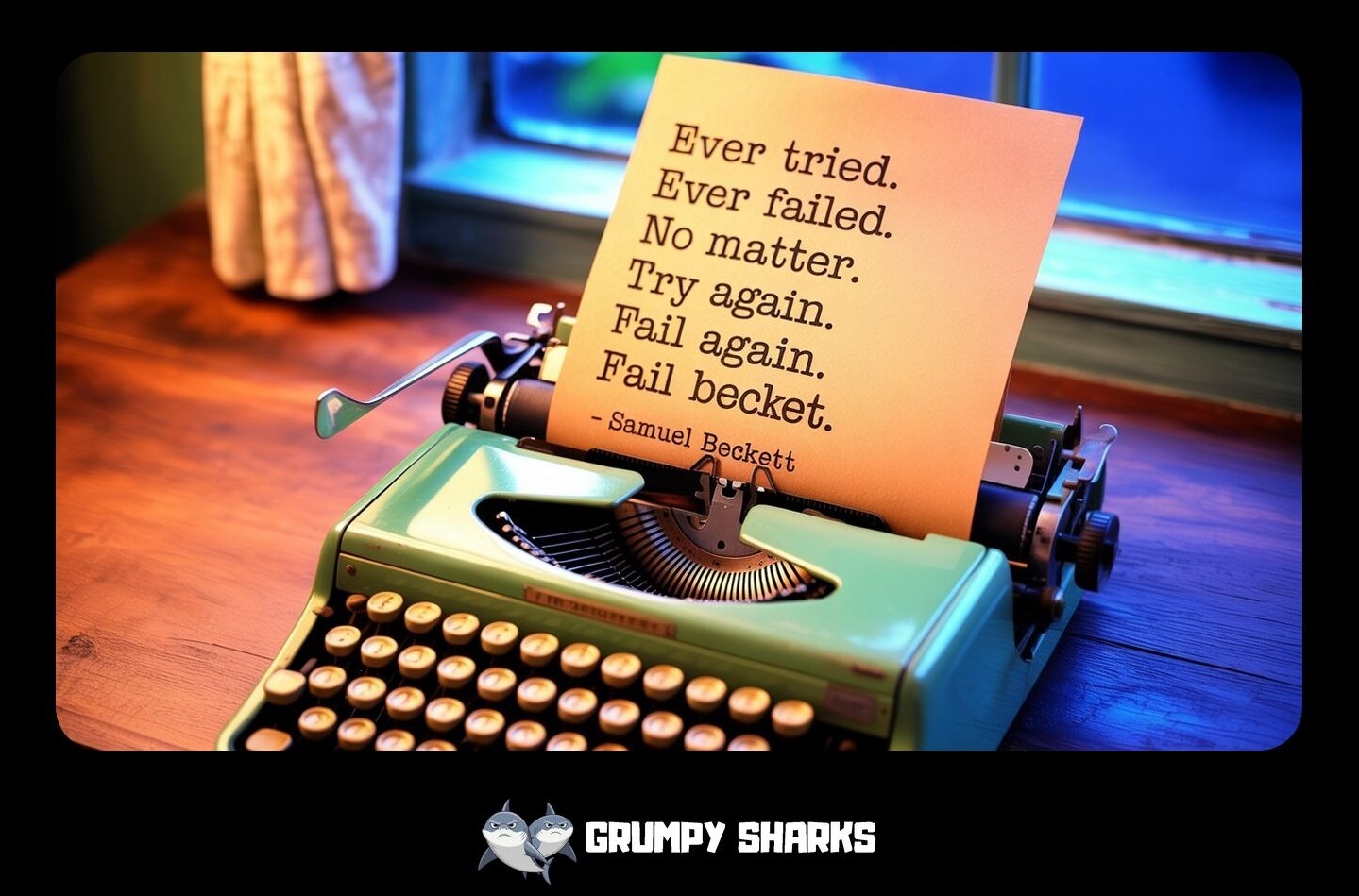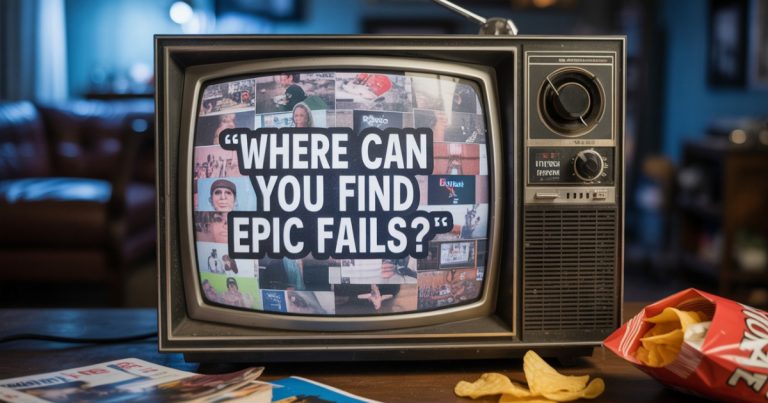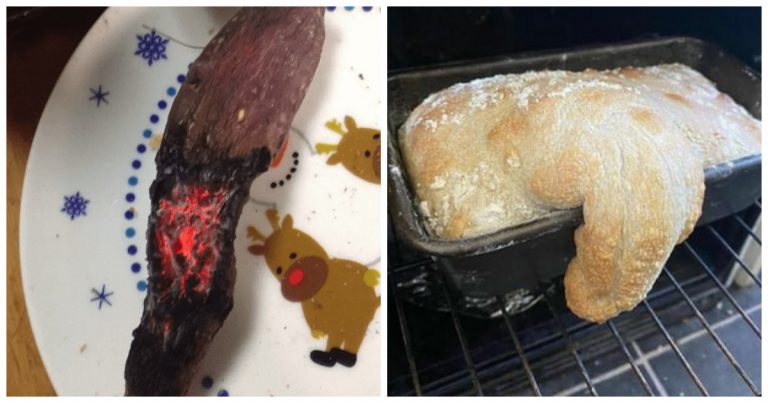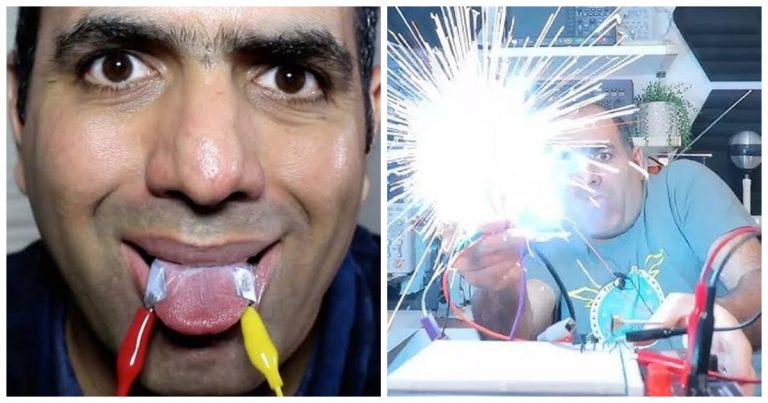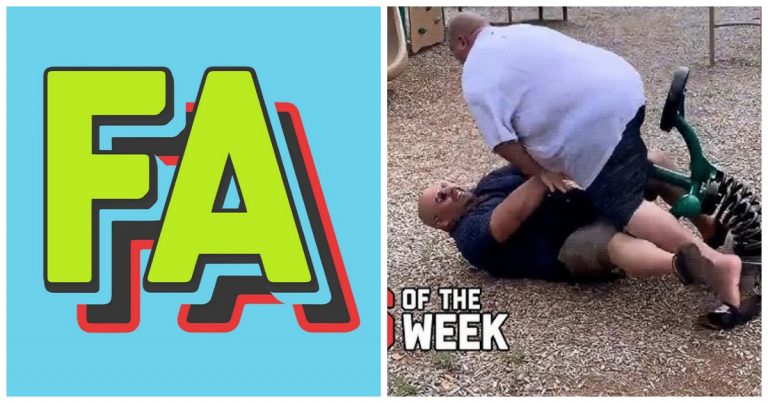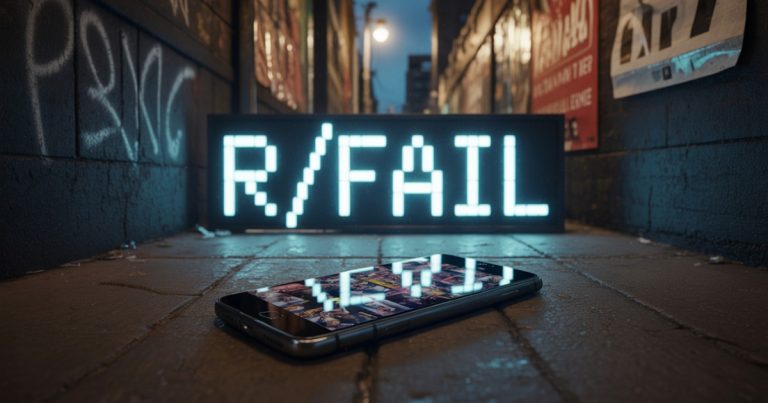Fail Again Fail Better Quote: Understanding Samuel Beckett’s Most Famous Words
One of the most popular quotes that has recently gained traction in the realms of self-help and entrepreneurship is the iconic fail again fail better quote from the renowned Irish author Samuel Beckett. The “fail again, fail better” quote comes from Beckett’s work Worstward Ho!, a piece that explores themes of failure, existentialism, and the absurdity of life.
While the quote is often used to encourage resilience and perseverance in the face of failure, its original context is much darker. We, Grumpy Sharks, will share with you what the fail again fail better quote really means, its origin, and how it has evolved over time.
Who Said “Fail, Fail Again, Fail Better”?
The fail again fail better quote is taken from Samuel Beckett’s Worstward Ho!, published in 1983. It is a short prose piece that explores themes of failure, existentialism, and the absurdity of life.
Who Was Samuel Beckett?
Samuel Beckett (1906-1989) was an Irish playwright, novelist, poet, and short story writer. He is most famously known for his avant-garde and minimalist works that address the absurdity of existence, the human condition, and the inevitability of failure. Beckett’s writing is often associated with existentialism, a philosophical movement that emphasizes the meaningless of life and the absurdity of human attempts to find purpose.
Beckett’s literary career spanned over five decades, and he is regarded as one of the most important authors of the 20th century. His works have had a significant influence on the theater, literature, and philosophy of his time.

What is the full quote of “fail better”?
The full quote from Beckett’s Worstward Ho! goes as follows:
“Ever tried. Ever failed. No matter. Try again. Fail again. Fail better.”
At face value, these words appear to be motivational, encouraging readers to keep trying, no matter how many times they fail.
At first glance, this may seem like an empowering call to action—urging perseverance in the face of failure. However, the full context of Beckett’s work reveals a much darker, more existential meaning. The quote is often pulled out of context to inspire individuals to continue trying despite failures. But when read in full, it becomes clear that Beckett is commenting on the absurdity of existence, where failure is not a temporary setback but an inherent part of life’s meaninglessness.
What does try again fail again fail better mean?
The phrase “Try again, fail again, fail better” captures Beckett’s philosophy of failure. In the context of Worstward Ho!, Beckett uses this line to highlight failure as a recurrent, inescapable part of life. The idea is not that failure leads to success, but rather that failure is inevitable and we must embrace it—fail better each time.
The Darker Context of the Fail Again Fail Better Quote
While today’s entrepreneurial culture has turned the “fail again, fail better quote” into a symbol of resilience and personal growth, Beckett’s writing is deeply rooted in existentialism and the absurdist tradition.
As Mark O’Connell writes for Slate, the entrepreneurial use of this quote completely misses Beckett’s original intent. O’Connell notes that the focus is not on personal progress but on failure as an essential part of the human condition. Beckett’s work reflects the futility of existence, where failure is not a stepping stone but rather an inescapable aspect of life.
Here’s an excerpt from the full quote in Worstward Ho!:
“First the body. No. First the place. No. First both. Now either. Now the other. Sick of the either try the other. Sick of it back sick of the either. So on. Somehow on. Till sick of both. Throw up and go. Where neither. Till sick of there. Throw up and back. The body again. Where none. The place again. Where none. Try again. Fail again. Better again. Or better worse. Fail worse again. Still worse again. Till sick for good. Throw up for good. Go for good. Where neither for good. Good and all.”
This passage illustrates a cyclical journey of failure without any sense of resolution or success, reinforcing Beckett’s dark view of life.
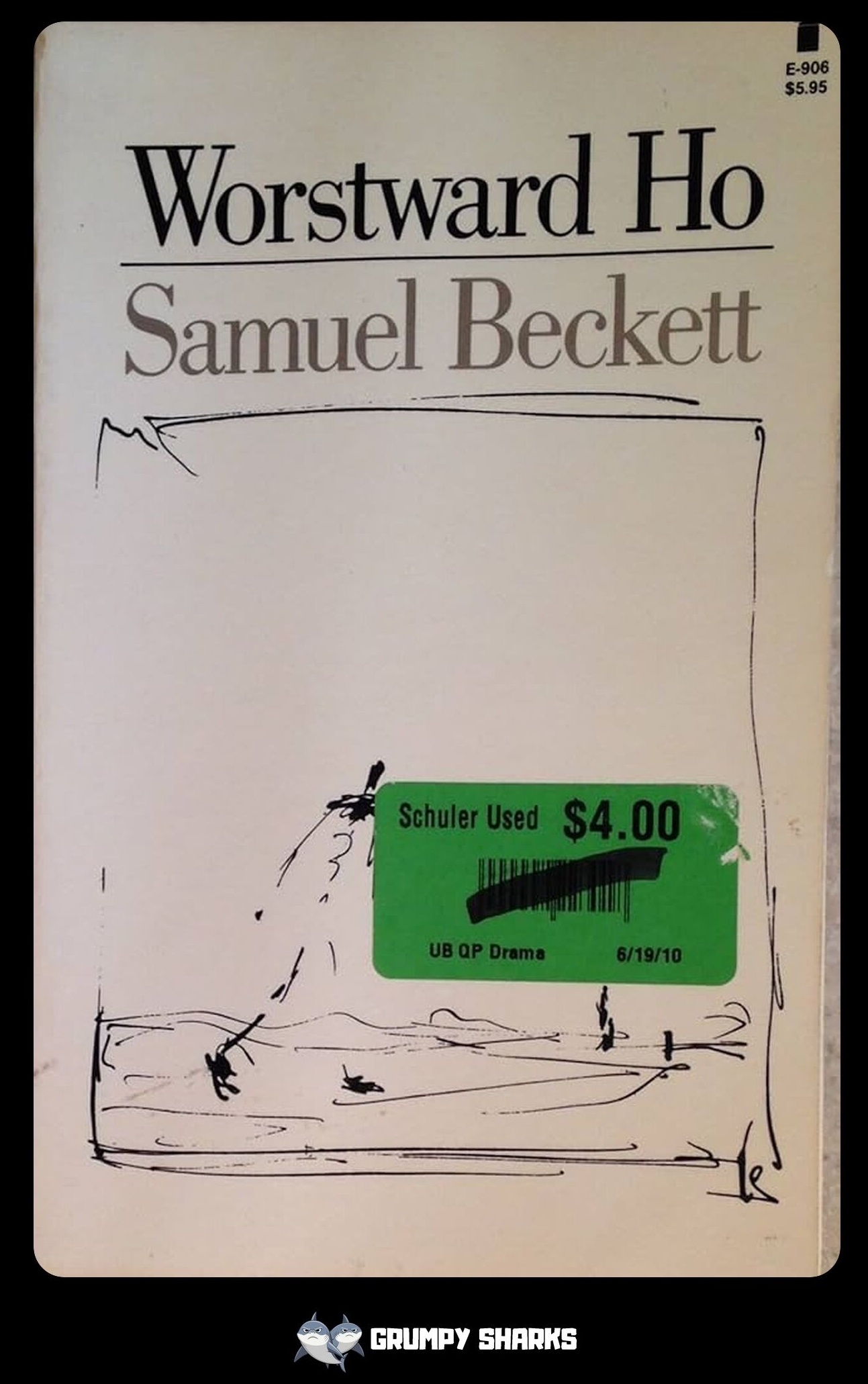
Why Has the “Fail Again, Fail Better” Quote Become So Popular?
Today, fail again fail better quote is often used in self-help, business, and motivational circles to encourage individuals to persevere despite setbacks. In the world of startups and entrepreneurship, failure is seen as a learning opportunity—a necessary part of the path to success.
For instance, startup founders, tech moguls, and life coaches have adopted “fail better” as a mantra for embracing mistakes and using them to improve. The idea of “failing better” implies that each failure brings you closer to success, as long as you learn from your mistakes and keep trying.
Conclusion: What Can We Learn from “Fail Again, Fail Better”?
The fail again fail better quote has become a symbol of resilience in modern culture, especially within business and self-help. While it’s often used to encourage individuals to keep trying despite failure, it’s important to remember its original context within Samuel Beckett’s Worstward Ho!—a reflection on existential despair and the absurdity of life.
Ultimately, this quote teaches us that failure is inevitable, but how we respond to it defines our ability to move forward. Whether you see it as a source of motivation or a reminder of life’s futility, the “fail again, fail better” quote will continue to resonate with those navigating the complexities of failure and growth.

